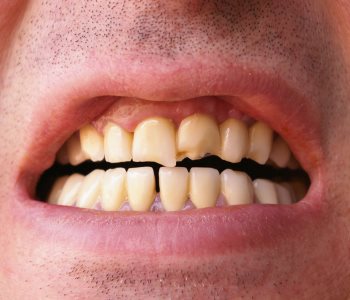What is Gum Disease

Caring for your teeth is important, but so is caring for your gums. Your gums are part of the foundation for your teeth, protecting the bone and the tooth’s roots. Inadequate oral care along with plaque can cause this strong foundation to recede leaving the more sensitive part of your tooth exposed and your gum and bone damaged.
Gum disease also known as periodontal disease is a bacterial infection that is caused by the bacteria found in plaque. It can cause damage to the gum and underlying bone and cause tooth loss. Periodontal actually means ‘around the tooth’. When this infection attacks the health around the tooth and is left untreated, it can lead to tooth loss regardless if the tooth is healthy.
Aggressive periodontitis can occur in those who are even in good general health and can be difficult to control. Bone loss and gum damage can occur quickly. Chronic periodontitis is the most frequent form of periodontitis where bone loss and gum damage occur more slowly over time. As a manifestion of systemic diseases, periodontitis is stemmed from other diseases such as diabetes, heart disease and respiratory disease. The necrotizing form of periodontitis is often found in those with conditions stemming from HIV, immunosuppression, and malnutrition.
It is important to visit your dentist at least every six months for preventive measures. The sooner gum disease is treated the better the outcome.








